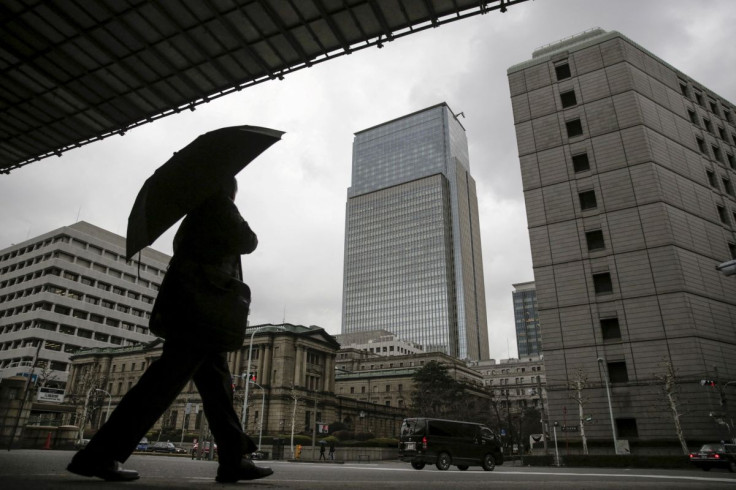BOJ Doubles Down On Super-easy Policy Stance; Yen Slides, Bonds Rally

The Bank of Japan on Thursday doubled down on its commitment to maintain its massive stimulus programme and a pledge to keep interest rates ultra-low, triggering a fresh sell-off in the yen and sending government bonds rallying.
Reinforcing its resolve to support a fragile economy even as sharp rises in raw material costs push up inflation, the BOJ also said it will offer to buy unlimited amounts of 10-year government bonds to defend an implicit 0.25% cap around its zero target every market day.
The BOJ's commitment to its zero-rate programme puts it at odds with major economies that are shifting toward tighter monetary policy, although inflation in Japan is expected to creep up towards the central bank's 2% target.
"The key announcement is the commitment to conducting fixed-rate operations every day," said Bart Wakabayashi, co-branch manager at State Street in Tokyo.
"I think they are trying to make the point here that we're ready to act at any second. They've quadrupled down on their commitment to this."
The doubling-down of BOJ's commitment to keeping policy accommodative drove the yen to a two-decade low on the U.S. dollar, while Japanese government bonds rallied.
As widely expected, the BOJ left unchanged its -0.1% target for short-term interest rates and a pledge to guide the 10-year bond yield around 0%.
"The BOJ expects short- and long-term policy interest rates to remain at their present or lower levels," the bank said in a statement, leaving unchanged the dovish guidance from the previous meeting in March.
In fresh quarterly forecasts, the central bank projected core consumer inflation to hit 1.9% in the current fiscal year before moderating to 1.1% in fiscal 2023 and 2024 - a sign it sees current cost-push price rises as transitory.
"Risks to prices are skewed to the upside for the time being, mainly reflecting uncertainties over energy prices, but are generally balanced thereafter," the BOJ said in its quarterly outlook report.
Speculation has been rife the BOJ could allow long-term rates to rise more or tweak its dovish policy guidance to combat yen declines, as some lawmakers fret further falls in the currency could hurt the economy by inflating import costs.
Markets are focusing on Governor Haruhiko Kuroda's remarks at his post-meeting briefing for clues on whether and how soon the BOJ could modify its dovish policy guidance.
Japan's economic growth likely stalled in the first quarter and is seen only rebounding modestly in April-June, as caution over the pandemic and rising living costs hurt consumption.
Core consumer inflation, which hit 0.8% in March, is set to accelerate to around 2% from April, though the rise will be driven largely by rising fuel costs and the dissipating effect of past cellphone fee cuts - rather than from higher wages, or underlying demand.
© Copyright Thomson Reuters 2024. All rights reserved.




















